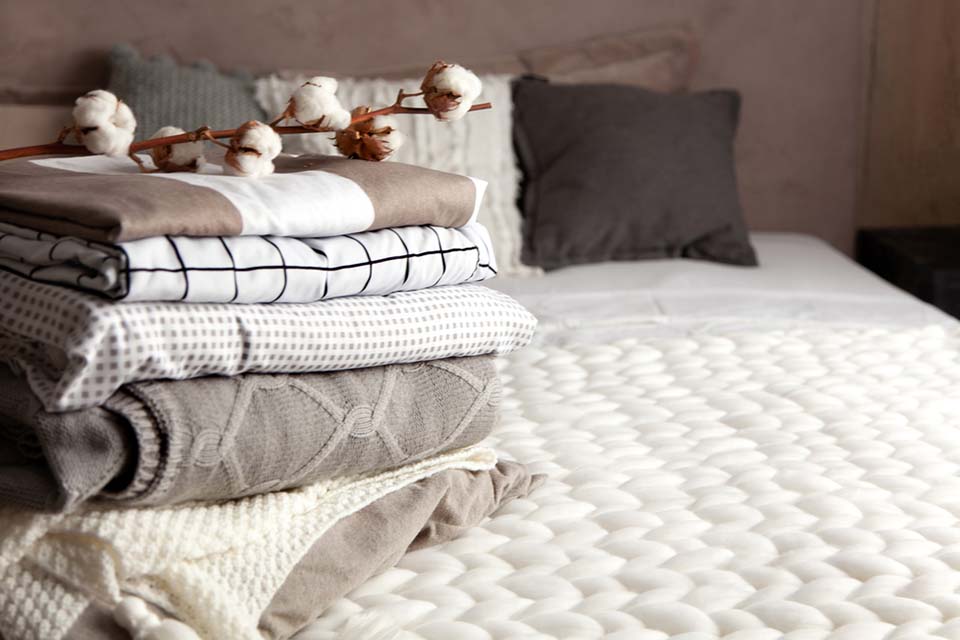Best Plant-Based Fabrics To Choose From

Natural fabrics have a decent road to go in the Global market before the wider population approves them. On the other hand, the enduring changing climate has gotten people to consider healthy options to previously overlooked factors.
The fabric acts as a second skin, so it must be comfortable to wear and free of harmful substances. The buyer is now prepared to make that switch and gradually understands that natural, environmentally productive alternatives are a requirement, not a bargain.
Truly cruelty-free clothing does not have negative consequences for animals, humans, or the ecosystem. The best part is that there is a wide range of environmental sustainability natural plant-based fabrics available.
The fabrics to reach out for when designing your sustainable natural plant-based fabrics clothing are listed down.
- Organic Cotton
Organic crops are grown without using toxic substances and do not harm the environment. It’s been shown to increase soil quality while still conserving water. Like other vegan fabrics, organic cotton is easy to clean, dries quicker, and is smoother to the touching than wool. - Linen (Flax)
Flaxseeds are certainly much known to you as a vegan. The flax plant’s reed is used to make linen, which is fabric. It has been produced in Europe and Japan for thousands of years which are a very environmentally friendly alternative.
On the other hand, Chinese linen uses traditional fertilizers and has a greater environmental impact, so look for high-quality European or Japanese linens for the most environmentally friendly alternatives. These choices are also of better quality, which would be important when building a sustainable wardrobe. - Hemp
Hemp is yet another excellent plant-based fiber that has many environmental advantages. It can be cultivated on marginal soils, so it doesn’t take up valuable farmland that could otherwise be used for food. Hemp is a lovely, soft material that is getting more and more popular. - Soymilk and Peace Silk
Soymilk is a silk-like material made from the soy residue leftover from tofu production. However, formaldehyde, a known carcinogen, is used in the manufacturing process.
This is a viable choice when you’re particularly looking for a silk substitute. Peace Silk is wild-harvested instead of cultivated, and no worms or moths were affected or used in the procedure. - Beech Tree Fiber
Modal is a type of rayon that is made entirely of sustainable beech tree fiber. Rayon fibers, such as modal, are often categorized as “natural-synthetic” since the lower layer is derived from a natural product. Modal fabric is extremely soft and comfortable, with a mild to a high sheen. It’s the actual “artificial silk,” and it’s smooth, dressed nicely, and colorings well. It does not require ironing and, like wool, returns to its original shape, form, and durability even after multiple cleanings. (Water weakens the structure of wool.) The Signature Modal Tree from the banana republic looks so comfortable that you’d like to wears it everywhere. - Coconut FiberYou’ll be able to purchase cozy and soft clothing made of coconuts shortly. Coconut fiber is used to create a fabric that is identical to rayon, which is traditionally made from trees. Nullarbor is an apt name for the new cloth. It protects wildlife and plants, and it uses the least area of land, water, and resources in its manufacturing. It’s unlikely that the fabrics will smell like coconuts, but if they were, that would have been fantastic.
Plant-based natural fabrics are the way of the future in terms of fashion trends. They’re adaptable and environmentally friendly. So, which ones are going to be your pick this year?
Bring the best of the CEOWORLD magazine's global journalism to audiences in the United States and around the world. - Add CEOWORLD magazine to your Google News feed.
Follow CEOWORLD magazine headlines on: Google News, LinkedIn, Twitter, and Facebook.
Copyright 2025 The CEOWORLD magazine. All rights reserved. This material (and any extract from it) must not be copied, redistributed or placed on any website, without CEOWORLD magazine' prior written consent. For media queries, please contact: info@ceoworld.biz








